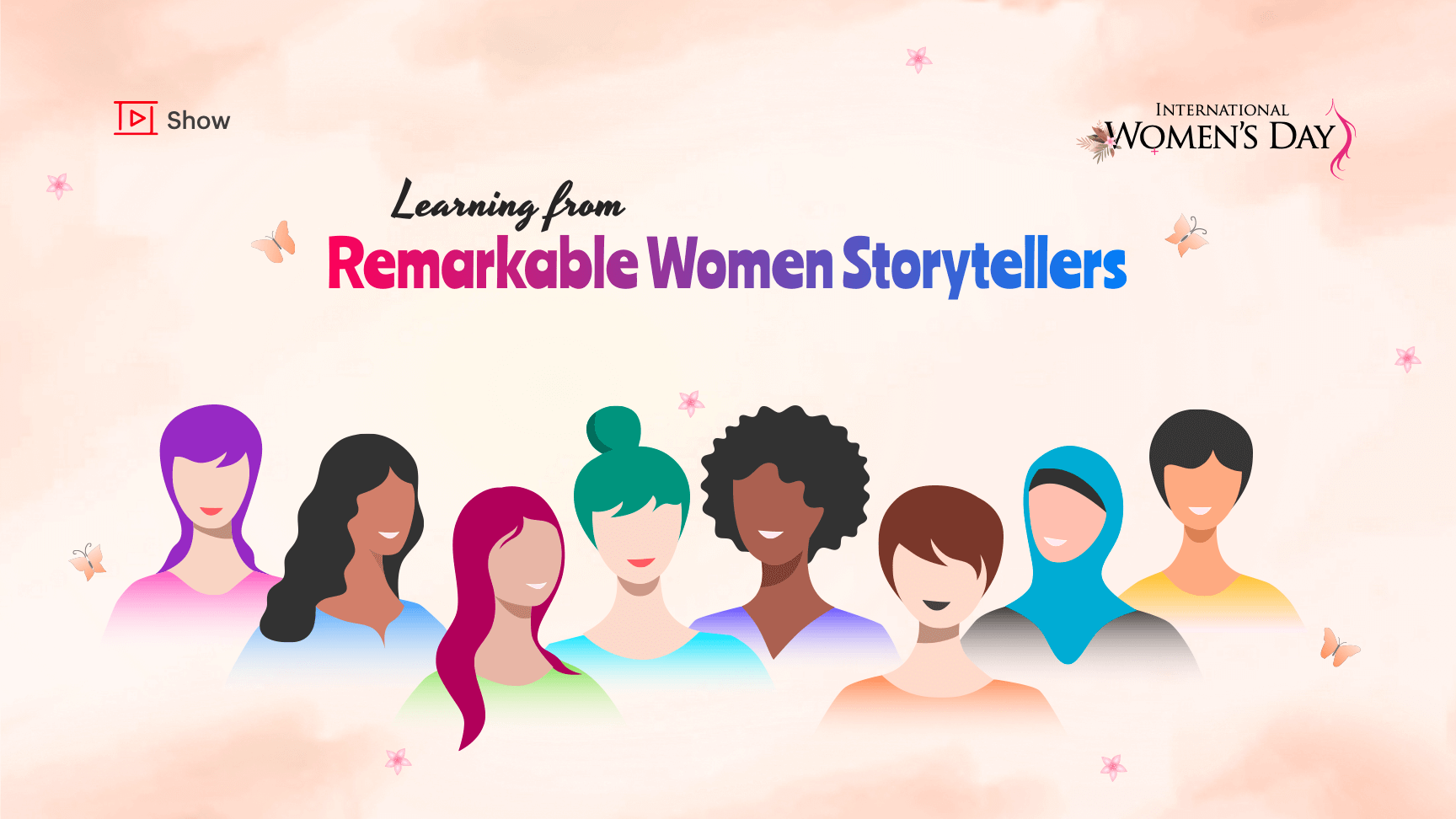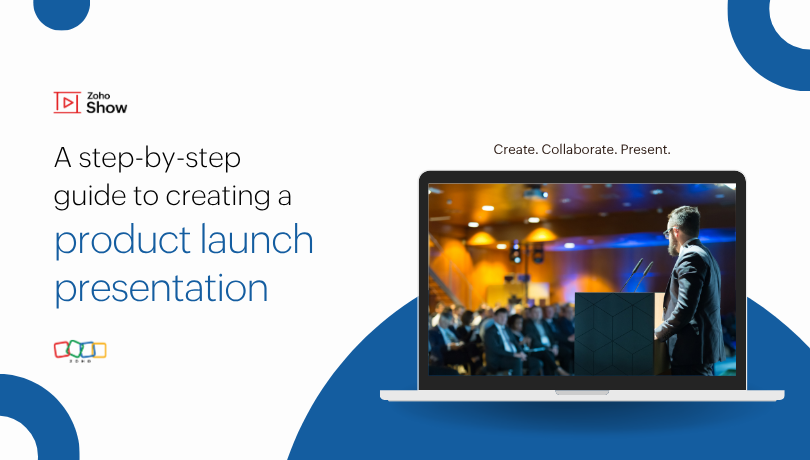- HOME
- Design & deliver
- International Women's Day: Learning from remarkable women storytellers
International Women's Day: Learning from remarkable women storytellers
- Last Updated : November 7, 2023
- 895 Views
- 6 Min Read

Women's accomplishments, regardless of field, are often undervalued and do not receive the recognition they deserve. The outstanding achievements of women merit acknowledgement, especially on International Women's Day. While one day is not enough to capture all their contributions to storytelling, presentations, and more, we want to highlight four remarkable women storytellers, and share some of their knowledge.
Amanda Gorman: Finding a flow and focusing on the details
Amanda Gorman is an American poet and activist. In 2021, she rose to prominence delivering an acclaimed oration of her poem, "The Hill We Climb." Gorman's performance moved her audience, and provides various storytelling insights we can use in our own presentations.
Spend time finding the ideal flow for your story. A well-structured and flowing story encourages the audience to join you on your journey. One of the characteristics of a well-told story is that it uses extensive detail to help your audience form a clear mental image. The more details you include, the more clearly your audience will remember your story.
Hannah Gadsby: The importance of authenticity
Hannah Gadsby is a public speaker, writer, and comedian best known for her critically acclaimed live comedy performance, Nanette. She emphasizes the importance of authenticity in storytelling. A story, according to Gadsby, can help establish connections with an audience that will not be possible otherwise. Sharing a story based on your authentic experience hooks your listeners and gets them more invested in the topic you're presenting. Even though everyone fears vulnerability in front of an audience, it can be a bridge that brings your audience closer to you.
Nancy Duarte: Using personal stories to establish an emotional connection
Nancy Duarte is a well-known speaker, CEO, and author of several books on the topics of presentation, design, and public speaking. A personal narrative, according to Duarte, is one of the most powerful tools a speaker can use. People typically avoid sharing personal stories with an audience because they don't want to appear vulnerable. However, vulnerability can help develop a connection with the audience by reminding them we are all human.
Draw upon your own memories to think of relevant personal stories while developing your presentation. Make a list of the people, events, and places that have influenced your life and impacted your perspective. Think of the stories surrounding these influences, and create one-line summaries. While some stories may be too personal to disclose, you will find others that can serve as the foundation for your next presentation.
Dianna Booher: Knowing the difference between a story and an anecdote
Diana Booher is an author, communication expert, and the CEO of Booher Research Institute. The Booher Research Institute offers executive coaching and communication consulting to nonprofit organizations and Fortune 500 companies. According to Booher, any type of presentation is easier to retain if it's wrapped in a story.
As a presenter, it is important to know the difference between a story and an anecdote so you can use each appropriately. An anecdote describes an incident or small part of your life, such as a vacation or job experience. For a listener, it can be funny, sorrowful, or amusing. A story is more structured and has three essential elements: a protagonist, an obstacle, and a goal.
The protagonist can be the presenter, an organization, or even an object such as a new product. Obstacles can be a competitor, budget restrictions, or simply having the wrong perception. The goal could be to achieve profitability, to beat a competitor to market, or to achieve whatever the protagonist in the story desires.
Structuring a good story will ensure listeners remain engaged throughout the presentation and root for the protagonist. This will help them remember your key message. An anecdote appeals to the mind of the listener, but a story has an emotional impact on your audience as they follow the protagonist's journey throughout the presentation. As Booher says, "Consider the anecdote like cotton candy. You taste it briefly, and then it’s gone. A story, on the other hand, satisfies like a full-course meal. It’s far more substantial."
Stories are meant to add meaning and elicit emotions from your audience, even if the topic is not particularly interesting to them. You can craft interesting stories that will captivate your audience with these insights from some of the best female storytellers and presenters. While we celebrate and learn from these illustrious storytellers, the Zoho Show team wishes everyone a Happy Women's Day!


